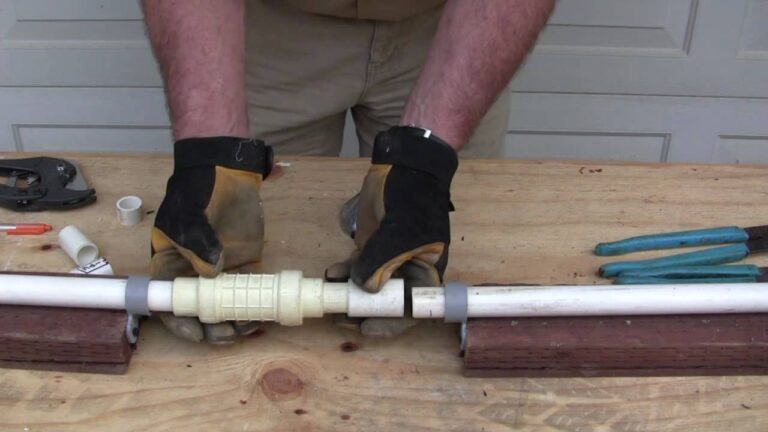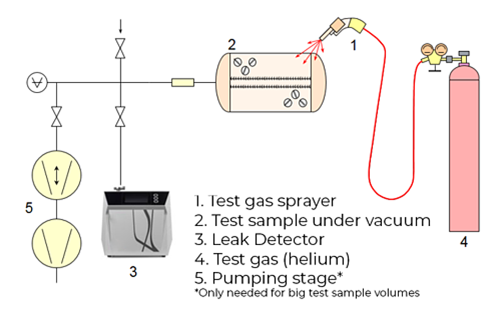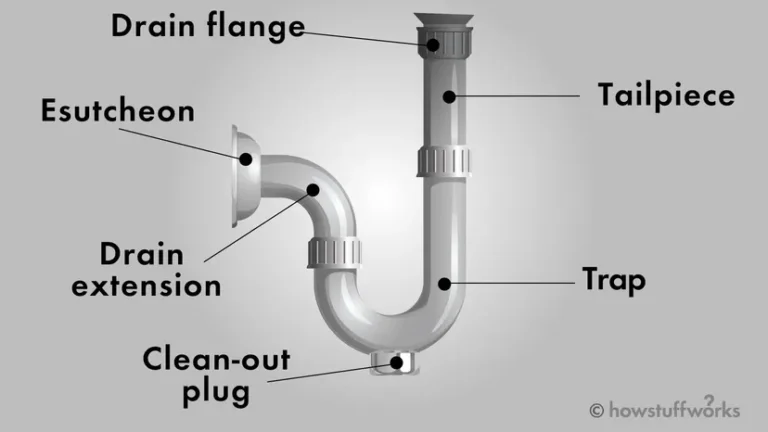What Does Rooter Mean In Plumbing?
Rooter is a term used in the plumbing industry to refer to a device or service used to remove tree roots, grease, and other obstructions from a plumbing system. It is a type of plumbing auger, or a snake, that is inserted into the plumbing pipes. Rooter services are often used for clogged drains, blocked toilets, and backed-up sewer lines. Rooter services are typically done by a professional plumber who has the proper tools and expertise to clear blockages of various kinds.
What is Rooter?
Rooter is an essential tool used in plumbing, and it is a plumbing device used to unclog blocked pipes and drain lines. It is a handheld device that utilizes a rotating cutting head to break up and remove debris from pipes and drains. Rooters are commonly used for unclogging kitchen sinks, bathtubs, showers, and other plumbing fixtures. They can also be used to clear out the main sewer line.
Rooter machines are powered by either electricity or gasoline, and some models come with a variety of attachments for various types of drains. They are easy to operate and require minimal maintenance. Rooters are often used in combination with drain snakes or augers to reach and clear obstructions in the pipe, such as tree roots, grease, and other debris.
Rooter service is a plumbing service that specializes in the use of rooters. Professional rooter services will have the right equipment and experience to properly handle any clogged drain or pipe. They can be used to prevent plumbing problems from occurring in the future. Professional rooter technicians are highly trained and experienced in using rooters and can quickly diagnose and repair plumbing issues.
In conclusion, rooter is an important plumbing tool that can be used to unclog blocked pipes and drain lines. Rooter machines are powered by either electricity or gasoline, and professional rooter services are highly trained and experienced in using rooters to quickly diagnose and repair plumbing issues. Rooters can also be used to prevent plumbing problems from occurring in the future.
Plumbing Snakes
Rooter, plumbing snake, and auger are three different tools used in plumbing for clearing up clogs. A rooter is a power tool used for breaking up clogs in a pipe. It has a motor that rotates a cable with a cutting head at the end. The cutting head is made of metal and is shaped like a corkscrew. It is inserted into the pipe and then the motor is activated to rotate the cutting head which breaks up the clog. Plumbing snakes are a manual tool used for clearing out clogs. This tool consists of a long flexible cable with a cutting head at the end. It is inserted into the pipe and then the user twists the handle to rotate the cable which helps break up the clog. Augers are another tool used for clearing up clogs. This tool is inserted into the pipe and then a handle is used to turn the auger. This helps break up the clog and clear the pipe. All three of these tools can be used to clear up clogs in plumbing, but they each have their own benefits and drawbacks.
Benefits of Using Rooter
Rooter services provide numerous benefits for plumbing systems. Rooter is a specialized plumbing tool that is used to unclog drains and clear blockages in pipes. It works by inserting a flexible cable into the clogged drain or pipe, thereby pushing through the clog and allowing water to flow freely again. Rooter services are beneficial because they can quickly and effectively clear clogs, are less intrusive than other plumbing solutions, and are less expensive than replacement pipes. Additionally, rooter services can help to prevent future clogs from occurring by providing an extra layer of protection to the pipes. Rooter services can be used to clean out grease, hair, and other debris that can accumulate in pipes over time, ensuring that plumbing systems run smoothly and reliably. Ultimately, rooter services can help to save time and money in the long run, providing a cost-effective solution to plumbing problems.

Types of Rooter
Rooter is a device used in plumbing to unclog drains and pipes. It is an important tool for residential and commercial plumbers, and it is important to understand the types of rooter available. Generally, there are three main types of rooter: manual, electric, and pneumatic.
Manual rooters are the simplest type of rooter and are typically powered by a hand crank. They are ideal for small jobs, such as unclogging a sink, and are relatively inexpensive. Electric rooters are powered by an electric motor and are typically used for larger jobs, such as unclogging a sewer line. They are more expensive but are more powerful and can be used to clear out larger amounts of debris.
Finally, pneumatic rooters are powered by air pressure and are the most powerful type of rooter. They are ideal for clearing out tough clogs and can be used in a variety of situations. However, they are also the most expensive type of rooter and require specialized knowledge and skill to use.
No matter what type of rooter you choose, it is important to understand how to use it correctly and safely. It is also important to use the appropriate rooter for the job to ensure the best results. Understanding the various types of rooter and their uses can help you choose the right tool for the job and ensure that your plumbing system is running smoothly and efficiently.
Advantages and Disadvantages of Rooter
Rooter plumbing is a popular method of clearing clogged drains and sewer lines. Rooter is a specialized tool used to cut through tree roots and other debris that may have grown into the drainage system. This technique is often more effective than traditional snaking methods, though it can be more expensive and time-consuming. Before deciding if rooter plumbing is the right option for your home, it is important to understand the advantages and disadvantages of this method.
Advantages of rooter plumbing include its ability to completely remove tree roots and other obstructions from drainage lines. This ensures that the problem is solved and won’t require additional repairs or maintenance. Rooter plumbing is also much faster than snaking, as the tool can quickly and effectively break through tough roots. Additionally, by completely removing the obstruction, this method helps to prevent future clogs from forming in the same area.
Disadvantages of rooter plumbing include the cost of the tool, which may not be covered by most plumbing warranties. Additionally, rooter plumbing requires specialized knowledge and experience, which can make it more expensive to hire a plumber. Finally, rooter plumbing can damage the pipe if not used properly, resulting in costly repairs or replacement.
In conclusion, rooter plumbing has both advantages and disadvantages to consider before using it to clear a clogged drain or sewer line. Though it is typically faster and more effective than snaking, it is important to understand the potential risks and costs associated with this method. With the right knowledge and experience, rooter plumbing can be a safe and effective way to address drainage issues.
How to Safely Use a Rooter
Using a rooter to clear clogged drains is a common plumbing technique and one of the most effective ways to remove tough blockages. But, a rooter comes with certain safety risks, so it’s important to understand the basics before getting started. To ensure safety and effectiveness when using a rooter, it’s best to be aware of the following tips:
Always wear protective gear when using a rooter, including safety goggles, gloves, and boots. The rotating blades of the rooter can be dangerous, and protective gear is essential for avoiding injuries.
Be sure to check the area for any potential hazards before starting. Make sure all drain covers are tightly secured, and be aware of any electrical wiring in the area.
When using a rooter, be sure to control the cable and keep it tight in order to avoid any tangles or kinks. Additionally, be sure to keep the cable clear of any objects in the drain that could get caught in the blades.
Be sure to unplug the rooter when it’s not in use, and never leave it unattended. Additionally, it’s important to regularly inspect the rooter for any signs of damage or wear-and-tear.
Finally, always make sure to dispose of waste properly. In addition to clogs, rooters can often unearth waste such as animal bones, glass, and other objects that should be disposed of properly.
By following these tips, you can rest assured that your use of a rooter will be safe and effective. Additionally, it’s important to always reference the manufacturer’s instructions for use prior to beginning any plumbing job.
FAQs About the What Does Rooter Mean In Plumbing?
1. What is rooter in plumbing?
A rooter is a plumbing tool used to clear out clogged drains and sewers. It uses a spinning auger or cable to break through the clog and dislodge it from the drain.
2. How does a rooter work?
A rooter works by using a spinning auger or cable to break up the clog and dislodge it from the drain. The auger or cable is inserted into the drain and then rotated at high speed to break up the blockage. The dislodged material is then flushed away.
3. When should I use a rooter?
A rooter should be used when a drain is clogged and a plunger is not working. It can also be used to clear out tree roots that have grown into a sewer line.
Conclusion
Rooter is an important tool in the plumbing industry. It is a machine that uses high-pressure water to break up and remove blockages in pipes, such as tree roots or other debris. With its powerful jets, it can unclog stubborn clogs and help to ensure that plumbing systems run smoothly. Rooter can also be used to jet out grease and debris from drains and sewers. These powerful machines can save time and money by preventing backups and ensuring that plumbing systems remain in top condition.







